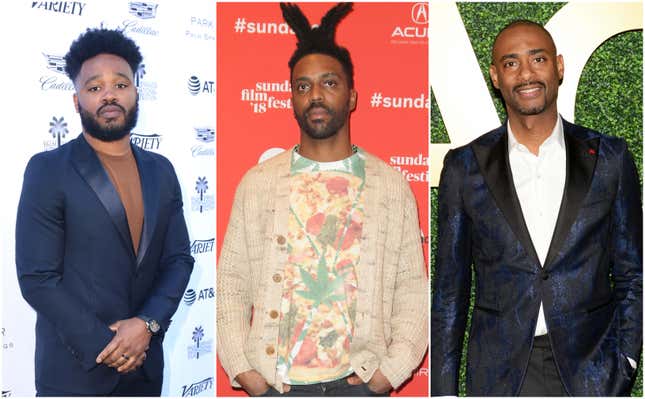
When Ryan Coogler, Shaka King, and Charles King first sat down to discuss the now Oscar-nominated film Judas and the Black Messiah, I’m sure they never imagined the level of buzz it would receive.
And by buzz, I mean multiple wins and nominations across the African-American Film Critics Association, BAFTAs, Golden Globes, Black Reel, and SAG Awards. But perhaps the biggest buzz of all comes from the Academy of Motion Picture Arts and Sciences, aka the Oscars. Deservedly securing the highest recognition of them all—a nomination for Best Picture—this particular buzz, I’m sure, probably comes with a lot of feelings. Unfortunately for director Shaka King that feeling is bittersweet, as he explained to The Hollywood Reporter:
I think about, ‘Why did it take 93 years for there to be three Black producers nominated for an Academy Award?’ Is it because there weren’t three Black people willing to produce movies? Probably not. Was it because we didn’t have the access to the kind of capital to make a big, sweeping studio feature? Maybe a little bit. Was it because we made that stuff and they didn’t recognize it? Maybe a little bit. But none of it feels good. So it’s bittersweet.”
He later added, “I’ve never been the first Black person to do anything. For me, having the experiences I’ve had in this business, which are not dissimilar from the experiences my grandfather had as a Black janitor, or my dad had as a Black math teacher…I’ve learned to find satisfaction in ways where I don’t have to rely upon the co-sign of primarily white-led institutions. But a friend pointed out to me the power for those who are coming on the heels of us in seeing three Black men achieve something like this in our industry, and I couldn’t deny that.”
Speaking of denial, you might be surprised to know that Black Panther director Coogler denied the Academy’s invitation to join their membership in 2016 and has yet to join to this day. Similar to King’s feelings about not needing white validation, Coogler explained that he didn’t really “buy into this versus that, or this movie wasn’t good enough to make this list,” adding that his love of movies was good enough on its own.
Charles King added, “I knew the challenge of getting stories like Judas and the Black Messiah made for years and years. I wanted us to be at a place of empowerment and to show the artists that they should be recognizing their power and thinking entrepreneurially.”
Their entire interview can be read in the March 31 issue of The Hollywood Reporter magazine.



